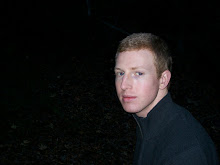You have a month to work on yourself before school starts up again. You’ve been over this a few times. You have not addressed yourself. You have not committed to an experiment.
Being around the familiar, around home, induces a deadened tone. You must be in-touch with yourself in order to spot this. It will take over.
You leave the house around 1:30pm. You realize while a few streets down that it is Sunday, that things are not open. You stumble around until buying a café latte from McDonald’s and sitting in the park. You walk across water filled grass to use the restroom. You read ‘Red Azalea’ on a park table in the shade. You get cold and move to sit in the sunlight up against a large pine tree. After some time further coldness persuades you to walk across the water filled grass back to your truck.
You make some tea. You watch a bad movie on the Internet about a small town, a casino, and when to move on. You heat up some noodles and spend the rest of the evening reading the rest of ‘Red Azalea’.
The book is a memoir logging the early life of a Chinese woman during the Cultural Revolution. It is about commitment, the longing for intimate, growth-centered relationships, entrapment, disillusionment, and passionate life-projects. It is written in simple prose, remarkably simple prose. You recognize the quality of in-touchness that would be necessary to write such a thing. There is much that you can smell here. It is well beyond vulgar bullshit. The style focuses your attention: it says shhhh, can you hear it? The Cultural Revolution is displayed not for political commentary. Your life is not yours, it is ours, and it is forced upon you. You will do this and this. It is for the people. You find yourself hating yourself. There are tigers in the room at all times. You fashion yourself silent, fluid, compromising, complimenting. You do things to people that you start to hate, but you feel paralyzed. In fact, everything is a war. No way out. It’s a show. History is the emperor telling the people, the working, shuffling, corpses what to do. The people follow along, blaming who they are suppose to blame, praising who they are suppose to praise. So it goes. Revolutionaries are reactive. Reactionaries reactive.
You will probably re-read this book. It does small, heavy things. Its not concerned with directly talking about the destructiveness of other-determinedness on the ‘individual’. There’s no need to talk about it: its there. Author Anchee Min discloses herself as a Self. The Self is caught in gears, is tide down – rows and rows of knots bury the warmth. It is spirit. The Self notices the Aliveness in others. It is not bullshit. The Self feels passion and injustice like the sting the body feels when burnt with a red-hot iron. But there are authentic pulses, nevertheless, in this maze and confusion. The public self wishes to dissolve itself so that both itself and the private are no more, so that there is only one. The ‘Supervisor’ is a master of illusion and yet wields passion, recourses to the bare pulse. Fear and inferiority do not weigh him down.

No comments:
Post a Comment